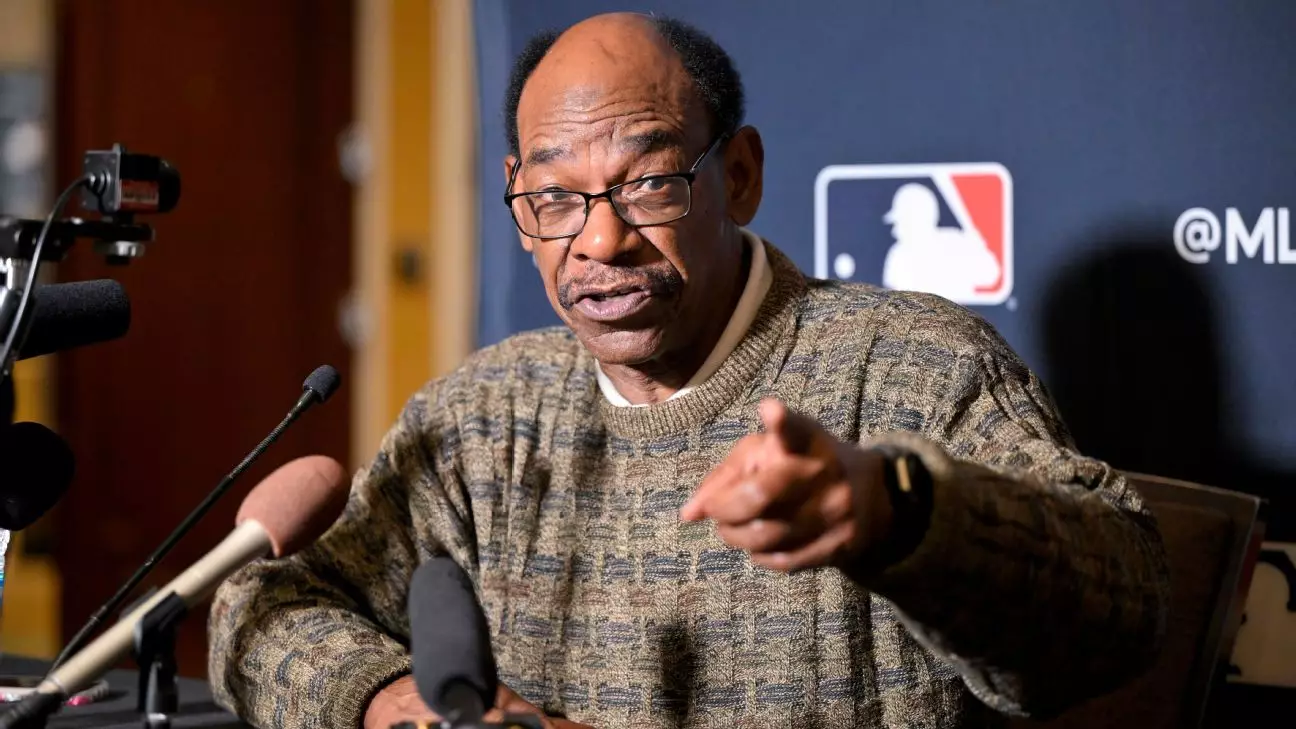The annual MLB winter meetings, a festive amalgam of trades, free-agent signings, and heated discussions, transcend mere transactional activity; they offer a unique occasion for managers to exchange ideas and analyze the game together. As the baseball world converges in Dallas, the attention of fans and analysts shifts to the general managers and their roster decisions, igniting speculation about star players and potential trades. Yet, among the noise, the voices of managers echo with insights that deserve examination, especially concerning rule changes, playoff formats, and the league’s landscape moving forward.
Rule Changes: The Managers’ Perspectives
As the 2023 MLB season concluded, the landscape of baseball underwent significant transformation with numerous rule alterations aimed at enhancing the pace of play and overall spectator engagement. When discussing these changes, several managers expressed optimism about the trajectory of the game. Dave Martinez, manager of the Washington Nationals, enthusiastically stated, “It definitely won’t be the golden at-bat,” suggesting a preference for the game’s current direction and its adaptability to evolving fan expectations.
Conversely, Ron Washington of the Los Angeles Angels voiced concerns surrounding the pitch clock, arguing that it might disproportionately challenge younger pitchers still finding their footing in major league environments. His advocacy for allowing pitchers the time they need to deliver effectively highlights a recurring theme among the coaching staff: a desire to balance speed with the integrity of gameplay. Other managers like Derek Shelton of the Pittsburgh Pirates even went a step further, proposing a challenge system that would add a layer of accuracy and fairness—something harkening back to innovations attempted in the minor league system.
Such dialogues reveal the profound complexity managers face as they wrestle with maintaining the traditional nuances of baseball while accommodating an increasingly critical audience clamoring for excitement.
The MLB playoff setup has drawn mixed reactions. Some teams find the changes to the wild card numerous-game format an improvement, enhancing competitive dynamics among teams jockeying for postseason positions. Brandon Hyde of the Baltimore Orioles appreciates the added excitement, hinting that the multi-game series contribute positively to team engagement and fan involvement.
On the flip side, there are concerns regarding the psychological impacts on teams that dominate their divisions. Washington notes that teams securing large divisional leads may struggle to maintain an edge if they face extended waiting periods before playoffs. The manager’s insights detail a hidden challenge within the structure that may nullify the competitive advantage typically associated with strong divisional performances.
Despite the intricacies, a consensus emerges among several managers regarding the need for meaningful late-season games. Rocco Baldelli of the Minnesota Twins echoed this sentiment, emphasizing that expanded formats foster an atmosphere of competition, one that preserves the stakes for most teams throughout the season, rather than contributing to a meaningless last stretch.
Players to Fear and the Managers’ Admiration
When discussing formidable opponents, it is noteworthy how managers display respect and admiration for certain players. The consensus acknowledges the insurmountable skills of players like Shohei Ohtani, Juan Soto, and Aaron Judge, who instill a healthy fear among pitching staff. For instance, Shelton aptly captures the apprehension Soto inspires with his versatility at the plate—highlighting how his capacity to make pitchers throw strikes compounds the difficulties faced by opposing defenses.
Interestingly, the managers also recognize excellence in each other, revealing a fraternity forged through shared experiences. Both Bruce Bochy and Terry Francona are frequently highlighted for their adept bullpen management, emphasizing the respect among peers who have to strategize against each other’s decisions regularly. Such acknowledgments illustrate not only the competitive nature of the game but also the underlying camaraderie that exists within MLB managerial circles.
The winter meetings serve as a springboard for examining baseball’s evolution, as they bring together the key figures responsible for steering the game’s future. The robust discussions surrounding rule changes, playoff formats, and the admiration for standout players underscore a commitment to enhancing the sport while respecting its roots.
As sentiments converge toward embracing innovation—while remaining vigilant about the essence of the game—it becomes clear that the managers, each with their unique philosophies and strategies, play a crucial role in shaping the narrative of baseball. In the end, the ongoing dialogue between tradition and modernity will dictate how baseball evolves, resonates with contemporary audiences, and sustains its distinctive charm for generations to come.


Leave a Reply